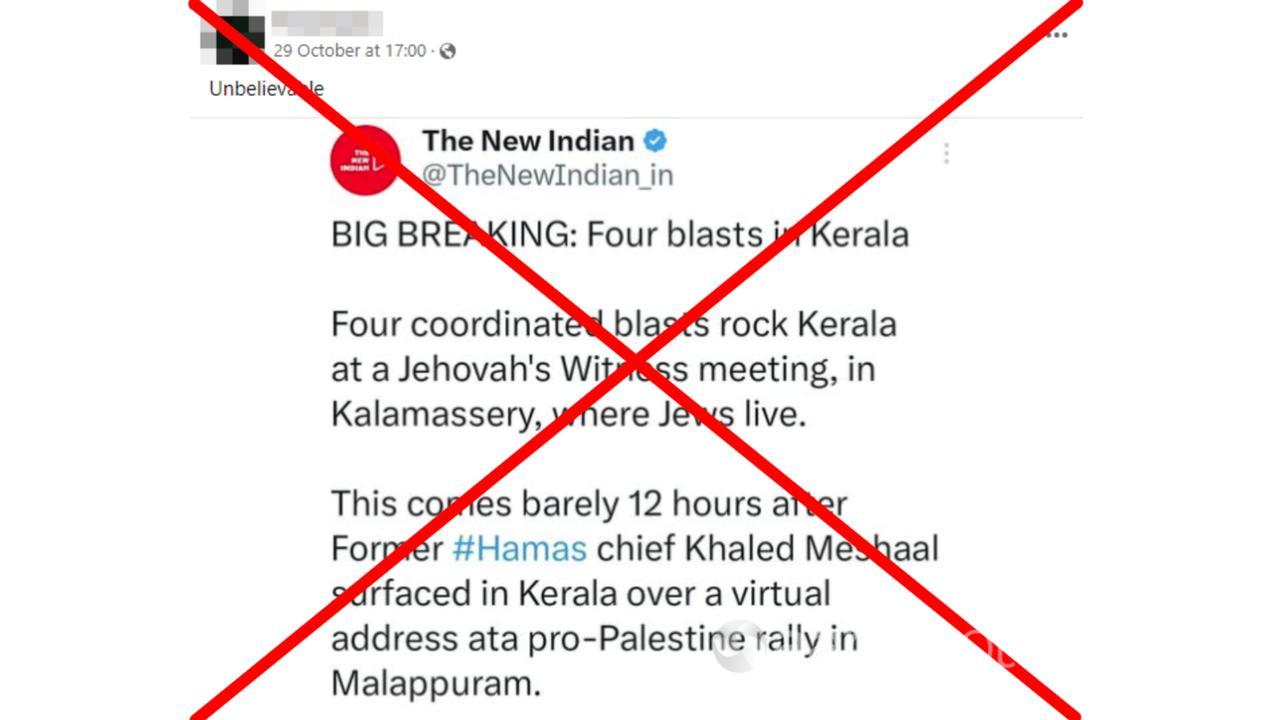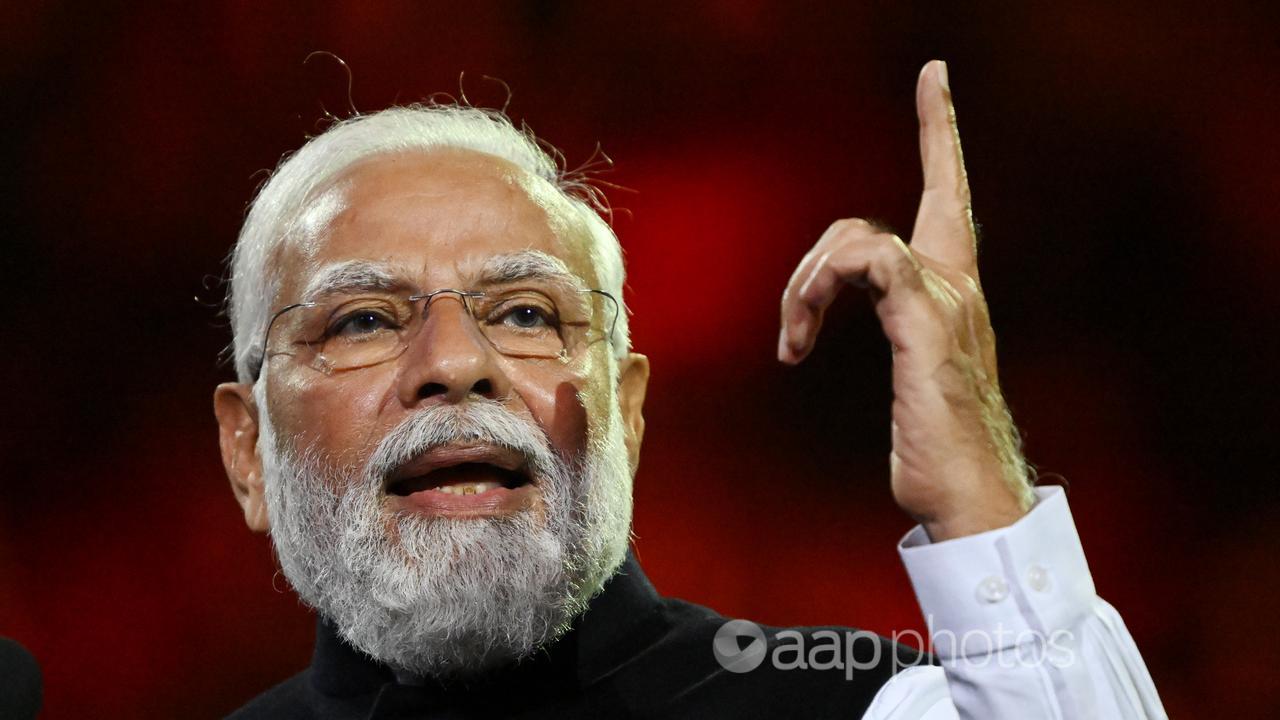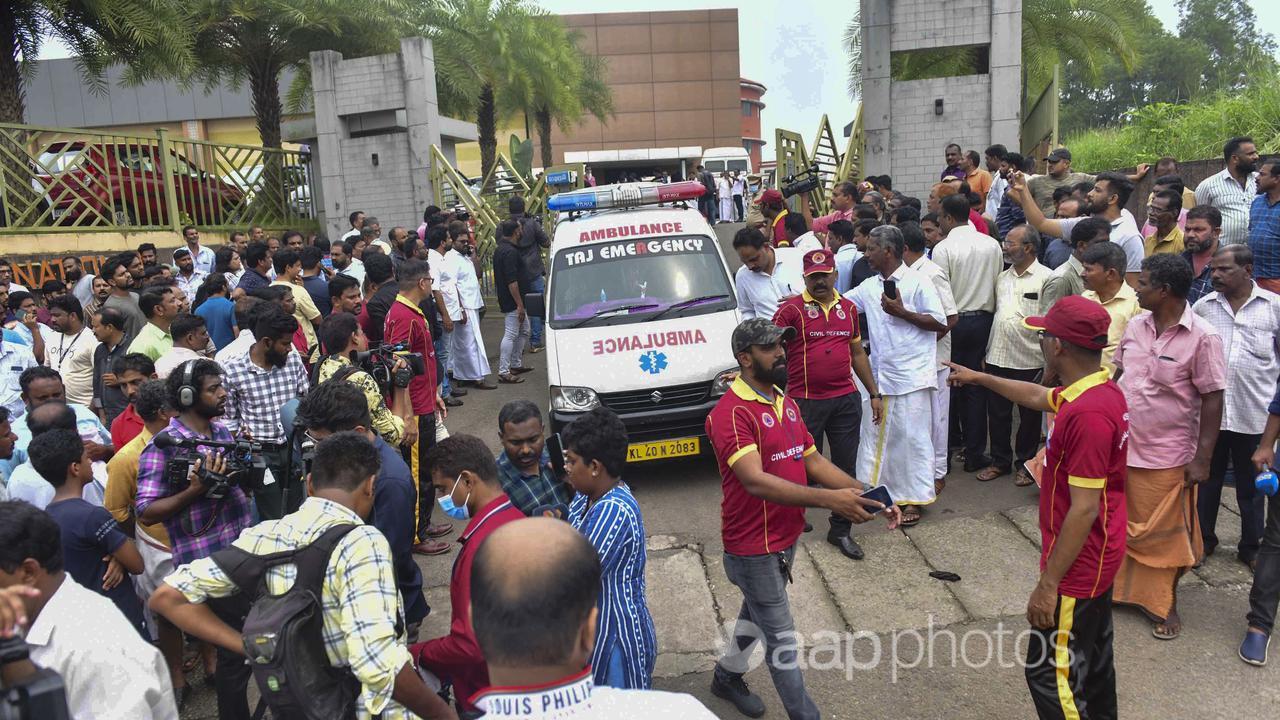A deadly bombing in India is being misrepresented as linked to the Israel-Hamas conflict, with claims Jews living there were targeted in the attack.
This is false. A meeting of Jehovah’s Witnesses in the state of Kerala was attacked on October 29, allegedly by a disgruntled former member of the religious group.
The man has since confessed to the bombing which killed three people, according to media reports including the BBC and Reuters.
There is no link to the Middle East conflict or any suggestions Jewish people were targeted.
Within hours of the attack, social media users began making claims the blast hit Kerala “where Jews live” in Kalamassery and were quickly shared on Facebook.
In the weeks since it has also circulated among the Indian community in Australia.

Many claimed the incident was specifically targeting Jews, as seen here and here.
Multiple posts also made links to former Hamas leader Khaled Mashaal, who virtually addressed a pro-Palestine rally in Kerala several hours before the blast.
Some posts imply or claim there was a connection to the bombing, as seen here, here and here.
Dominic Martin confessed to the Kerala attack within 24 hours and surrendered to police, stating in a video he was a former member who felt the Jehovah’s Witnesses’ “teachings were dangerous to the country”.
He also recorded videos of himself testing explosive devices, The Times of India reported.
News accounts in India of Martin’s arrest make no mention of any links to the Jewish community or Hamas, as seen here, here, here, here, and here.
The Jehovah’s Witnesses Christian sect has no connection to the Jewish faith.
Misinformation about the attack spread quickly, amplified by Indian government minister Rajeev Chandrasekhar, who wrote on X (formely Twittter) that “in Kerala open calls by Terrorist Hamas for Jihad is causing attacks and bomb blasts on innocent christians (sic)”.
Police reportedly opened an investigation into his post over allegations he had stirred religious hatred on social media.

There have been concerns about a rise in Islamophobia in India under Hindu nationalist leader Narendra Modi.
Reporters in India have also debunked claims of any links between the bombing and conflict in the Middle East.
“Kalamassery has no Jewish population and has nothing to do with Israel,” South First reporter K A Shaji wrote in a piece, noting there were “fake narrative” attempts “to project the explosion as part of jihad”.
An article from 2016 on the Haaretz website claimed only 26 Jews were then living in the Kerala city of Kochi, of which Kalamassery is a suburb.
Other Indian news sites have also called out the misinformation about the bombing, as seen here, here and here.
Harish Nair, India’s managing editor of fact-checking organisation Fact Crescendo, told AAP FactCheck the claim was false.
Nair confirmed details with local police and also said there is no Jewish community in the Kalamassery area.
He also said there was no suggestion locally that the attack was connected to the virtual appearance of Mashaal, which he said happened some 150km away.
Dheeshma Puzhakkal, the principal correspondent at India Today Fact Check, also said the claim was false.
She too confirmed there was no Jewish population in the area and no evidence to link the attack to Mashaal’s speech.
The Verdict
The claim Jews were targeted in an October 29 bombing in India is false.
A Jehovah’s Witnesses meeting was bombed, leaving three dead, but a disgruntled member of the group has reportedly confessed and been arrested.
There is no suggestion of a link to a virtual meeting by a former Hamas leader shortly before the blast.
False – The claim is inaccurate.
AAP FactCheck is an accredited member of the International Fact-Checking Network. To keep up with our latest fact checks, follow us on Facebook, Twitter and Instagram.
All information, text and images included on the AAP Websites is for personal use only and may not be re-written, copied, re-sold or re-distributed, framed, linked, shared onto social media or otherwise used whether for compensation of any kind or not, unless you have the prior written permission of AAP. For more information, please refer to our standard terms and conditions.


















